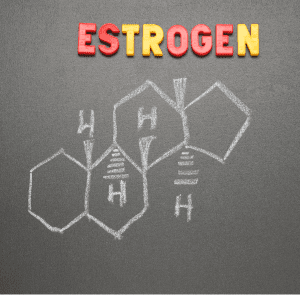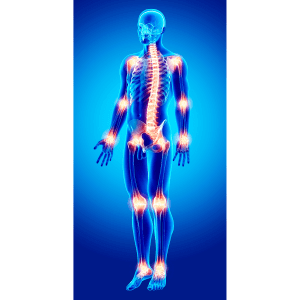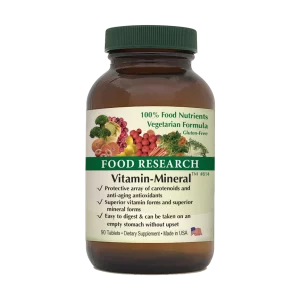Your cart is empty.
Most people think of vitamins the way they think of jumper cables: as a nice backup when things aren’t working, but not truly essential unless something has gone wrong. But what if it’s not “just vitamins”?
what if it’s not “just vitamins”?
What if vitamins and minerals aren’t optional at all?
What if they’re the very reason your body isn’t healing, your brain feels foggy, or your hormones are off?
🔬 Vitamins Are Not “Extras” – They Are Fuel for Your Cells
Vitamins and minerals aren’t band-aids. They’re the building blocks your body needs to function, repair, and thrive.
- Your nervous system needs B vitamins to send clear signals between your brain and body.
- Your hormones depend on adequate cholesterol, zinc, and iodine simply to be created.
- Your detox system can’t operate without magnesium, sulfur, and amino acids.
- Your immune system needs vitamin D, vitamin A, and selenium to recognize invaders.
And those are just a few examples. Without the right nutrients, your body doesn’t just slow down—it starts breaking down.
⚠️ Conventional Medicine Often Misses This Point
If you go to your doctor with symptoms like fatigue, anxiety, or joint pain, the typical approach is to:
- Order some basic labs (like a standard CBC or metabolic panel).
- Rule out major diseases.
- Offer a medication to relieve the symptom.
Rarely will they ask: “Is your body getting what it needs to function correctly?”
This happens because nutrient testing isn’t routine. Because most of us don’t learn about the deep connection between nutrition and physiology. Because the medical model is often focused on managing dysfunction, not reversing it.
But here’s the truth: A body that doesn’t have the raw materials it needs can’t heal.
🧩 When Symptoms Don’t Respond, Look at Nutrients
You may have cleaned up your diet. You may have taken medications and done all the “right” things. But if your symptoms won’t budge, you have to ask: Are my cells starving for something they need?
Nutrient depletion can happen due to:
- Chronic infections (like tick-borne illness)
- Poor absorption from gut dysfunction
- Chronic stress or trauma
- Medication side effects (from antacids, antibiotics, birth control, or SSRIs)
- Environmental toxins
- Food choices that don’t replenish your stores
So while you might be taking a multivitamin, it may not be targeted to your body’s deeper deficiencies, and it may not be absorbing at all.
🧠 This Is Especially True with Chronic Illness
When the body is under attack – from a hidden infection, mold exposure, or long-term inflammation – it burns through nutrients faster and absorbs them worse.
Tick-borne illnesses like Lyme, Babesia, and Bartonella are known to:
- Disrupt mitochondria (your energy factories)
- Sabotage detox pathways
- Impair brain and nerve signaling
- Create hormonal chaos
All of this increases your need for foundational nutrients, not decreases it.
🛠️ Bottom Line: You Can’t Build a Healthy Body Without the Right Materials
Even if you’re undergoing treatments or interventions, if you’re not giving your body what it fundamentally needs to repair itself, your healing can stall.
Think of it like trying to build a house without wood, nails, or power tools.
✅ Your Next Step: Rebuild Your Nutritional Foundation
 If you feel stuck and are not getting better, it’s time to come back to the basics. Start with a basic foundational whole-food nutrient source tailored to energy, detox, and gut repair, such as a combination of lVitamin & Mineral™ and Digesti-Pan (or Pro-Enzymes if you need vegetarian supplements.)
If you feel stuck and are not getting better, it’s time to come back to the basics. Start with a basic foundational whole-food nutrient source tailored to energy, detox, and gut repair, such as a combination of lVitamin & Mineral™ and Digesti-Pan (or Pro-Enzymes if you need vegetarian supplements.)
Don’t assume vitamins are “optional.” They may be the missing link between your symptoms and your healing. If you’ve done everything “right” but are still not getting results, it’s time to look deeper.
Healing doesn’t start with medication. It starts with nourishment.
Let’s discover what your body is truly missing. Schedule a free discovery call with Dr. Bonnie.
Disclaimer: The information in this article is for educational purposes only and is not intended as medical advice. Please consult with a qualified healthcare professional before making any changes to your health regimen.

Dr. Bonnie Juul
Horowitz, R. I., & Freeman, P. R. (2019). Precision medicine: The role of the MSIDS model in defining, diagnosing, and treating chronic Lyme disease/post-treatment Lyme disease syndrome and other chronic illness. Healthcare, 7(1), 129. https://doi.org/10.3390/healthcare7040129 (This article discusses the multi-systemic nature of chronic Lyme disease, which underpins the increased metabolic and nutritional demands for mitochondrial support, detoxification, and neurological repair).
Mohn, E. S., Kern, H. J., Saltzman, E., Mitmesser, S. H., & McKay, D. L. (2018). Evidence of drug-nutrient interactions with chronic use of commonly prescribed medications: An update. Pharmaceutics, 10(1), 36. https://doi.org/10.3390/pharmaceutics10010036
Gombart, A. F., Pierre, A., & Maggini, S. (2020). A review of micronutrients and the immune system–working in harmony to reduce the risk of infection. Nutrients, 12(1), 236. https://doi.org/10.3390/nu12010236
Hodges, R. E., & Minich, D. M. (2015). Modulation of metabolic detoxification pathways using foods and food-derived components: A scientific review with practice application. Journal of Nutrition and Metabolism, 2015, 760689. https://doi.org/10.1155/2015/760689
Pizzorno, J. E., & Murray, M. T. (2020). Textbook of natural medicine (5th ed.). Churchill Livingstone. (This comprehensive textbook explains that cholesterol is the precursor to all steroid hormones [e.g., cortisol, estrogen, testosterone] and details the roles of zinc and iodine in thyroid hormone synthesis and overall endocrine function).
Kennedy, D. O. (2016). B Vitamins and the brain: Mechanisms, dose and efficacy—A review. Nutrients, 8(2), 68. https://doi.org/10.3390/nu8020068
